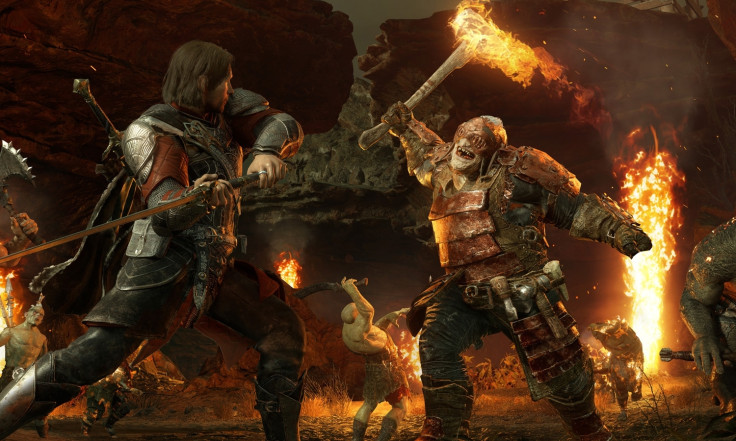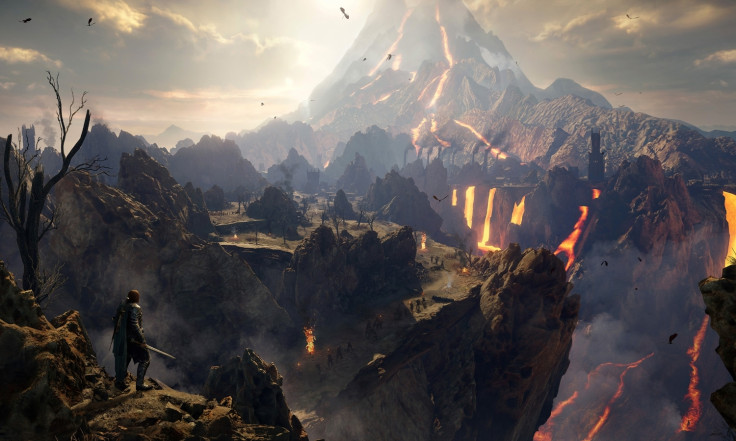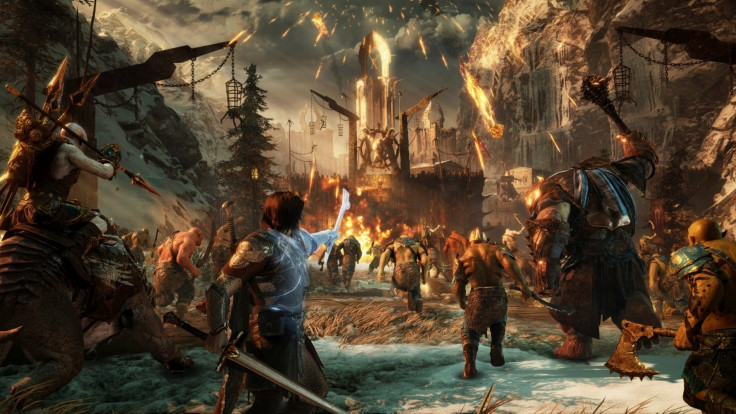What Middle-earth: Shadow of War fails to understand about JRR Tolkien's Lord of the Rings
Why Monolith and Warner Bros action RPG series leaves me cold despite the Nemesis system.

JRR Tolkien's influence on the world of fantasy story-telling can't be overstated. Every story of elves and dwarves, goblins and orcs that has followed Lord of the Rings is indebted to the author's lifetime of work in some way.
It's his template that so many follow to their own creative ends, in countless books, films and video games, expanding on the archetypes he helped shape and telling a multitude of stories with them. Tolkien's books helped create the foundation for an entire genre as we know it.
At the turn of the century, Tolkien's work also became something else: a cash cow. The books have been popular for as long as they've been a mainstay of the schools around the country, but Peter Jackson's enormous big screen trilogy changed things.
Ever since, Warner Bros has tried to eke all the money it can from Tolkien's work, from the tie-in games released alongside each film to Jackson's Hobbit trilogy - rushed as it was and stretched completely out of shape.
Now we have Monolith's action RPG series, which made such a big impression with 2014's Middle-earth: Shadow of Mordor.
Key to the game's success was the innovative Nemesis system, which created a hierarchy for its orc legions and dynamic stories of revenge between the player - as a man imbued with the powers of a wraith - and the many uruks he encounters.
Loss or defeat would inform a continuing microstory. Best an orc and they may appear later in the game bearing a scar, driven by the embarrassment of their loss, be defeated and they'll laud their victory over you as you get an opportunity to set things right.
Everyone was bowled over by the system, how it enriched the game's storytelling, and it returns in sequel Shadow of War this week, improved and expanded upon.
Only, despite the quality of the Nemesis system, I'm not interested. At all. And ultimately it comes down to what I'm looking for from the game.
Some games I want to play primarily for their systems, like Destiny 2 and Super Mario Odyssey, while others I'm more interested in the story they're trying to tell, like What Remains of Edith Finch. Others draw me in with one and surprise me with the other, like Horizon: Zero Dawn and to a lesser extent, The Legend of Zelda: Breath of the Wild.
It's never clear cut, and I don't have a preference either way, but when it comes to Shadow of War I find myself disinterested because of the clash between the game's mechanics and my experience of its predecessor's story.
My problem with Shadow of Mordor's story and in fact the game's whole ethos, is how violently it clashes with the tone and meaning of Tolkien's work.

The Lord of the Rings is, among other things, an anti-war story. It's about how conflict is sometimes unavoidable, and the ways it affects those who fight. At the heart of the story are the hobbits, surrogates for the young and innocent sent to battle during the First World War that took place before the books were written.
Tolkien himself served during the First World War, and fought in the Battle of the Somme.
Hobbits are key to the Lord of the Rings because they start the story so blissfully unaware of the world around them, and yet it's Frodo, Sam, Merry and Pippin who fight the hardest to save it, in the process defying the expectations of all they encounter.
Return of the King ends with 'The Scouring of the Shire', in which the hobbits return to their home following the apparent end of the battle for Middle-earth, only to find Saruman bringing death and destruction to the Shire.
War follows them home as it does for all soldiers, and their lives are never and can never be the same.
While the films don't depict The Scouring, they do emphasise the trauma sustained by Frodo, showing him bearing the physical and mental scars of his experience, before deciding to leave Middle-earth for good.
He left the world he did his part to save because it came at the cost of the life he lived and the world as he knew it.

Shadow of Mordor's Nemesis system is a great mechanic and entirely worth sampling, but it never held my attention for long because it and everything else about the game was so far removed from the meaning of Tolkien's work.
The Nemesis system creates rivalries, but it's also a mechanic for war recruitment, for gathering forces and utilising them to the selfish ends of protagonist Talion, a character driven by revenge after the murder of his family.
Whereas the heroes of Lord of the Rings fight to preserve life, he wants to take it for no other reason than to satisfy his bloodlust. He doesn't fight for a better, brighter future, he fights because there's nothing else for him to do and that's what big action video games require.
Not only that, but the game revels in this violence, in gory slow motion shots of orcs being decapitated, blood gushing across the screen as they die agonising deaths.
This series is Lord of the Rings without the hobbits, a tale of pessimism rather than an optimism.
It tells a story for the kind of people who believe Boromir was right to try and take the Ring from Frodo. And yet, other than the Nemesis system, its ties to Tolkien are all the series really has. Without them, this is bland fantasy devoid of purpose or meaning.
There will be many who like the story, many who don't particularly care about its ties or lack thereof to Tolkien's books, and then those who play the game primarily for the new and improved Nemesis system.
That's fine of course. My problem however, is wanting that system put to better use, to help tell a more satisfying story.
© Copyright IBTimes 2024. All rights reserved.







